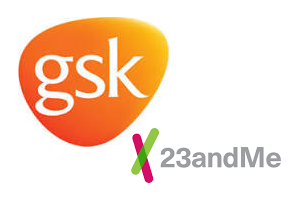23andMe announced recently that they entered a deal with pharmaceutical giant GlaxoSmithKline for $300 million to share its database of genetic data gathered from customers.
The DNA testing company is collaborating with the pharma giant to assist them in developing new drugs and conducting research. Genetic data is helpful for scientists because they can learn more about the roots of various conditions and diseases, which can lead to the development potential treatments or cures. 23andMe also has partnerships with drug companies Alnylam Pharmaceuticals, Biogen, Pfizer, and Genentech.
"We all have some disease or health issue that we care about. 23andMe has created a research platform to enable interested customers to participate in research — to not wait for solutions to appear, but for people to come together and make discoveries happen," 23andMe CEO Anne Wojcicki wrote in a letter to customers after the deal with GlaxoSmithKline was announced, according to Business Insider.
The average 23andMe customer contributes to more than 230 studies on topics including asthma, lupus, and Parkinson's disease, the company told Business Insider.
23andMe isn’t the only company sharing its genetic database. Other DNA testing companies like Ancestry and Helix do as well, though each has a different approach and uses different verbage to get consent from customers about selling genetic information to third parties. This has caused a lot of confusion and led to controversy among users and privacy rights advocates.
Another confusing component as Business Insider points out – customers might have difficulty preventing a third party from having access to their data if the company wasn’t a partner when the customer first signed the agreement. In other words, customers who signed up with 23andMe before the GSK partnership might not be aware that their data is now part of GSK’s research database, and will find it difficult to prevent their DNA from being shared with future partners.
Helix, another DNA testing company, allows users to opt-in to testing via each individual research partner, who must get consent from customers before using their data.
It’s not easy to prevent your DNA data from being sold to collaborators once you’ve agreed to let it be used for testing. 23andMe for instance, can keep your data for up to a decade. Also, the DNA data can be shared with multiple third parties for different purposes, other than disease testing. For instance, 23andMe has a partnership with P&G Beauty, and genetic data has been used for product research in Pantene shampoo and antacid Pepto Bismol, according to Business Insider.
This has concerned privacy advocates, who have complained that genetics testing companies aren’t up front with customers when they sign agreements as to how the data can be used, and are further profiting off of consumers’ genetic material. Others welcome the chance to contribute to scientific research in the hopes it leads to a better understanding of diseases that affect us today.
